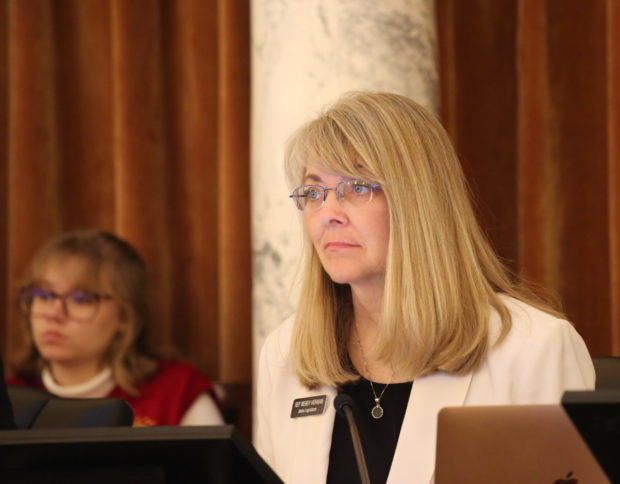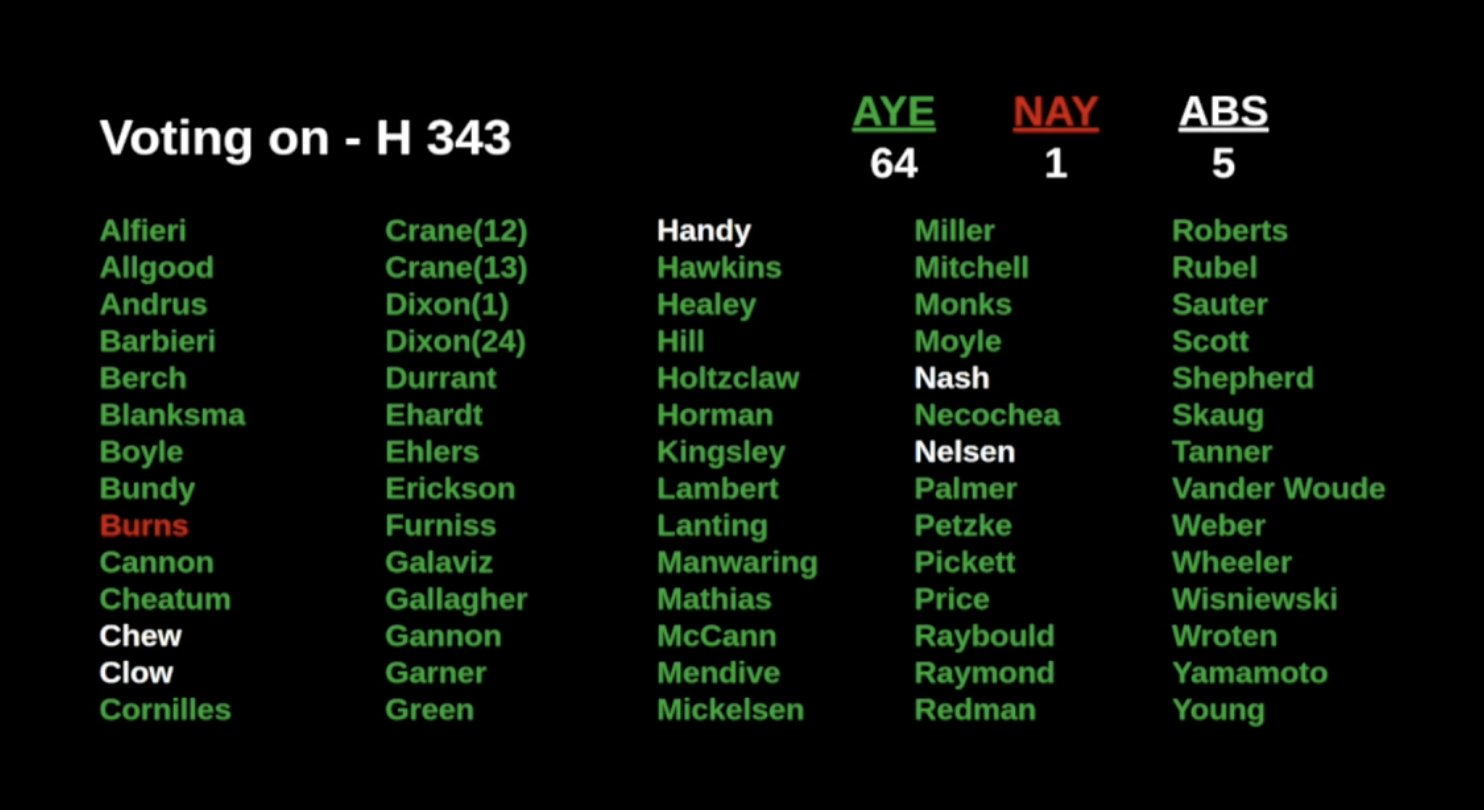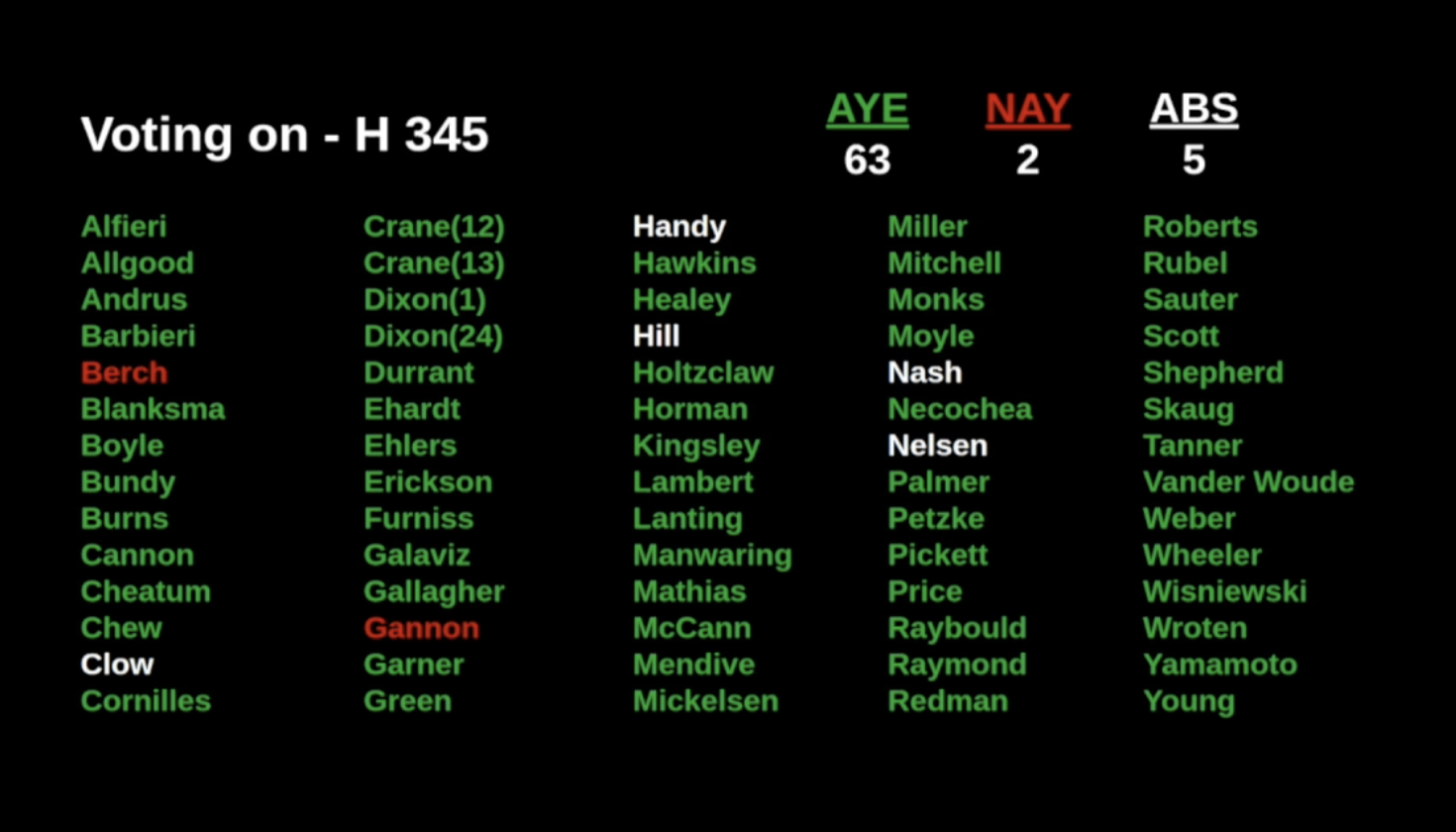A bill to provide state-funded private school grants appears dead for the 2023 session.
The abrupt move could also bring the Legislature’s protracted debate over school choice to a grinding halt.
Senate Bill 1161 — a proposal creating the five-year grant pilot — had been scheduled for a Wednesday hearing. But on Tuesday evening, sponsors asked House Education Committee Chairwoman Julie Yamamoto to pull the bill from the agenda.

“We have been visiting with individual committee members the past few days, searching for a way to advance the bill,” one of the sponsors, Rep. Wendy Horman, R-Idaho Falls, said Wednesday morning. “We heard back from the final committee members around 5 p.m. yesterday that was not a path they could support, so we requested the bill be pulled from the agenda.
“(Yamamoto) thanked us for the decision, calling it an act of mercy.”
On Wednesday, Yamamoto stopped short of saying SB 1161 didn’t have the support to get out of committee.
“I have not asked anyone to vote a certain way, or asked them what they were going to do,” said Yamamoto, R-Caldwell, who said she personally had “grave concerns” about the proposal.
SB 1161 would have piggybacked onto the Empowering Parents education microgrant program, adding a $12 million-a-year tuition grant pilot.
The program would have provided 2,000 families with grants of $6,000 apiece. SB 1161 had a five-year sunset; in 2029, legislators would have been required to decide on the program’s long-term future.
SB 1161 narrowly passed the Senate Thursday — but House Education had always loomed as a high hurdle. The committee has voted down other school choice proposals, as recently as last week.
With SB 1161 off the table, it appears unlikely that any school choice legislation will pass in the waning days of the 2023 session. Legislative leaders have said they hope to adjourn for the year Friday — although the session could stretch into at least next week.
Only one proposal remains in play: a $30 million private school and homeschool tax credit bill. But this bill could run into an end-of-session logjam. The House Revenue and Taxation Committee only introduced the proposal Tuesday morning, and it would have to pass both houses in the waning days of the session. First, this bill would need to get a hearing in Revenue and Taxation, and those prospects are uncertain.
“(I have) no plans at this time,” committee Chairman Jason Monks, R-Meridian, said Wednesday morning.
While the school choice debate is apparently finished for 2023, Yamamoto said the process worked as it should. The legislative process is designed to be “slow and cumbersome and messy,” she said, especially when lawmakers are weighing a pivotal decision about whether to put public money into private education.
“Maybe we can get a state dinosaur in one session,” Yamamoto said. “(This) rises to a different level.”
Library bill could see possible amendment
A ban on harmful materials in libraries could see an amendment in the coming days, after a vote in the Senate State Affairs Committee.
House Bill 314 seeks to prohibit harmful or obscene materials from public and school libraries. It stems from a concern that minors are being exposed to pornographic library collections. The bill was brought forward by Rep. Jaron Crane, R-Nampa; Sen. Cindy Carlson, R-Riggins, and Blaine Conzatti of the Idaho Family Policy Center.
The bill includes a civil action clause, including a $2,500 fine for libraries found guilty of disseminating harmful materials.
Dozens of people showed up to the Senate committee Wednesday to testify on HB 314 — and testimonies were evenly split between supporters and opponents.
Advocates of the bill recounted their experiences trying to get objectionable materials removed from their local libraries, without success.
Marianna Cochran, founder of North Idaho activism group Clean Books 4 Kids, said public libraries have “degraded into poisonous pits for kids,” because of the alleged pornographic materials. Cochran specifically referenced “Boy Toy,” by Barry Lyga — a book about a high schooler managing the aftereffects of being groomed and sexually abused by a male teacher.
Another testifier pointed to “Call Me Max,” a children’s book about a transgender boy navigating elementary school, and “Red Hood,” a self-described “dark” retelling of Little Red Riding Hood that focuses on female empowerment, male violence and consent.
Kara Claridge, also of Coeur d’Alene, called the books in her library collection “nauseatingly evil.”
But librarians and library advocates showed up to oppose HB 314.
Isabella Burgess, a student and library worker, said the bill unfairly attacks LGBTQ+ stories and individuals. The bill includes “homosexuality” under the definition of sexual conduct — something that could be interpreted to include any homosexual activity, as minor as kissing or holding hands. Burgess shared with the committee that she is a lesbian.
“This is not about the safety of our children, this is about fear, bigotry and hatred,” said Burgess. “It’s about erasing LGBTQ people.”
The bill’s civil action clause was a main cause for concern, even among committee members.
Michael Kane from the Idaho Counties Risk Management Program (ICRMP) said the clause would burden taxpayers. He suggested the committee send the bill to be amended to insert the bill into the Idaho tort claims act.
And the committee ultimately voted to do just that.
On a party-line vote, members sent the bill to the Senate floor for a possible amendment. Democratic Sens. Melissa Wintrow of Boise and James Ruchti of Pocatello rejected the bill; Ruchti said it would subject all Idahoans to prude community standards.
“It’s as though we want our kids to be able to grow up without ever having seen anything that might challenge the morals they’ve been raised with,” Ruchti said.
Revised charter commission budget easily passes House
A downsized budget for the Idaho Public Charter School Commission easily cleared the House Wednesday in a 64-1 vote.
The House previously rejected the budget because it set out to fund one additional program manager staff position. Opponents argued the additional staffer would cause increased regulation over public charter schools.

The Joint Finance-Appropriations Committee workshopped the bill, eliminating the $96,800 salary, and returned it to the House. Rep. Ned Burns, D-Boise, cast the only no vote. Five representatives were absent.
The budget bill will now head to the Senate for a final vote.
Charter revolving loan funding approved, and more from the House
The House quickly approved a $50 million appropriation for the new charter school revolving loan fund.
The funding will allow new charter schools to obtain lower interest rates on their building costs. The fund will begin to replenish after five years.
After a 63-2 vote, the bill is headed to the Senate.

National motto. An amended version of a bill requiring ‘In God We Trust’ to be displayed in schools passed the House 57-9. It now heads to Gov. Brad Little’s desk.
